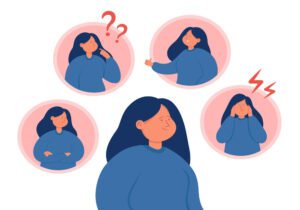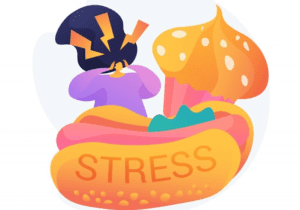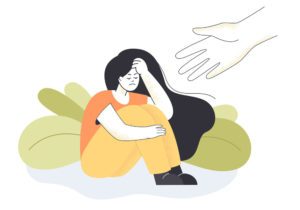Gentle Parenting: What is it and How to Try it Yourself
This article has been researched and written by Nayla Daou. AI has not been used in producing this article.
When it comes to raising children, no one has all the answers. Every parent and child have unique challenges and needs. Navigating these individual circumstances along with ever-changing environments, such as school systems, family changes, and other situations, can cause mums and dads to wonder, “Am I doing this parenting thing right?”
The good thing is you are not alone. While there is no perfect way, we’d love to share more about one of our favorite parenting styles, gentle parenting, and how can you try it yourself.
What is gentle parenting?
Gentle parenting is exactly what it sounds like: quite gentle. Instead of following the traditional, more authoritative parenting style, gentle parenting is an evidence-based approach that focuses on teaching children empathy, boundaries, respect, and understanding. By teaching these core pillars through age and developmentally appropriate skills and learning techniques designed to grow with them, your child will develop stronger empathy and emotional regulation. By modeling gentle and loving parenting through super stressful and emotional times, we’re teaching the next generation to learn how to properly express themselves in a way that is respectful yet impactful.
Gentle parenting provides:
- Flexibility to assess and understand one’s mistakes
- Clear boundaries and logical consequences
- Confidence building through protected exploration
- Freedom to make personal choices instead of following predetermined rules and demands
- Understanding and empathy (knowing that children do not always have the same control as adults)
- Emotional regulation during stressful or challenging situations

How to implement gentle parenting in your daily life
If your family is new to gentle parenting, you may experience some bumps along the way as you implement this parenting style into your life. One of the easiest ways to start implementing gentle parenting is by researching and understanding your role as a parent. Additionally, think about your past experiences. You may find you are already in alignment with some gentle parenting techniques. If so, take stock in understanding where you are already following the gentle parenting method while simultaneously jotting down target areas where you need to grow your expertise.
Start by adjusting your language
One of the easiest ways to start utilizing gentle parenting techniques is by adjusting your language to empathize, understand, and listen to your child. Then wrap up by providing positive guidance. For reference, here are a few positive alternatives to phrases parents may say often:
- Instead of saying, “Calm down,” try, “How can I help you?”
- Rather than telling, “That’s enough,” ask, “Do you need a hug?”
- As an alternative to “No running,” you can say, “Walk, please.”
- Instead of a firm, “Stop climbing on the furniture,” let children know why it’s unsafe and offer safer alternatives such as jumping jacks, swinging, pillow jumping, etc.
By making minor adjustments to language, you’ll see a quick improvement in yourself and how your children respond to you. It’s essential to make your children feel heard, understood, and validated instead of making them feel like they’re in trouble.
Model positive behaviors
Another great way to implement gentle parenting is to focus on modeling behaviors you want to see from your child in all aspects, mentally, emotionally, and physically. In most instances, you’ll find you’re working hard to rewire your thought processes while unlearning the negative parenting styles you modeled during childhood. For example, look at your actions. Are you slamming doors when you’re angry, storming out of the room, or interrupting others when they speak? Changing these behaviors can be challenging, but with the support, you’ll find its possible. At Clearminds, our child therapists and psychologists work alongside parents to develop positive parenting strategies that work for you and your child.
We understand parenting is no easy task, especially with extenuating circumstances such as blended families, adoptive relationships, or navigating teenage hormones. At Clearminds, our professional therapists and psychologists are here to help support you through the parenting process by teaching, brainstorming, and discussing gentle parenting techniques thoughtfully designed to help you develop a positive relationship with your children for years to come.
If you are interested in learning more about how gentle parenting can help your family, reach out to schedule your appointment today!
5 Simple Mental Health Practices for Your Everyday Life: Nurturing Your Body & Mind
In today’s fast-paced world, it’s becoming increasingly evident that we need to place our mental health at the forefront
Ways to Reduce Anxiety in 2024
As we say farewell to 2022 and usher in the New Year, we look towards the future. With New Year’s resolutions on the docket, many of us are striving to achieve a calm life …
Navigating Compassion Fatigue in the Digital Age: A Call to Prioritize Mental Well-Being
Amid the constant stream of information and images that flood our screens, the toll on our mental well-being can be …
The Link Between Anxiety and Overeating
All of us have encountered moments of stress and unease throughout our lives. These feelings of anxiety not only bring…
10 Steps To Fix A Toxic Relationship
Every relationship has its fair share of ups and downs, but when toxicity creeps in, it can become a serious challenge. Toxic relationships can be emotionally draining and detrimental to our overall …
Exploring the Benefits of EMDR Therapy for Anxiety and Depression
Anxiety and depression are two of the most common mental health disorders worldwide, affecting millions of people every year. While traditional talk therapy and medication can be …
Health Effects of Untreated Depression
It’s very common to feel sadness at one point or another in our life. Depending on your specific circumstances, you may even feel …
Psychologists vs. Psychiatrists – What’s the Difference?
Clients shouldn’t have to jump through hoops to understand who the perfect candidate is for treating their emotional and/or behavioral struggles. Yet, understanding the type of provider you should see during …
Gentle Parenting: What is it and How to Try it Yourself
When it comes to raising children, no one has all the answers. Every parent and child have unique challenges and needs. Navigating these individual circumstances along with ever-changing environments, such as school …
How to Improve Your Relationship with Your Children – A Psychologist’s Guide
The modern family’s lifestyle leaves us shuffling from school to sports practice, family events, visiting friends, and everything in between. As society evolves to become more on-the-go and technologically advanced, w…











